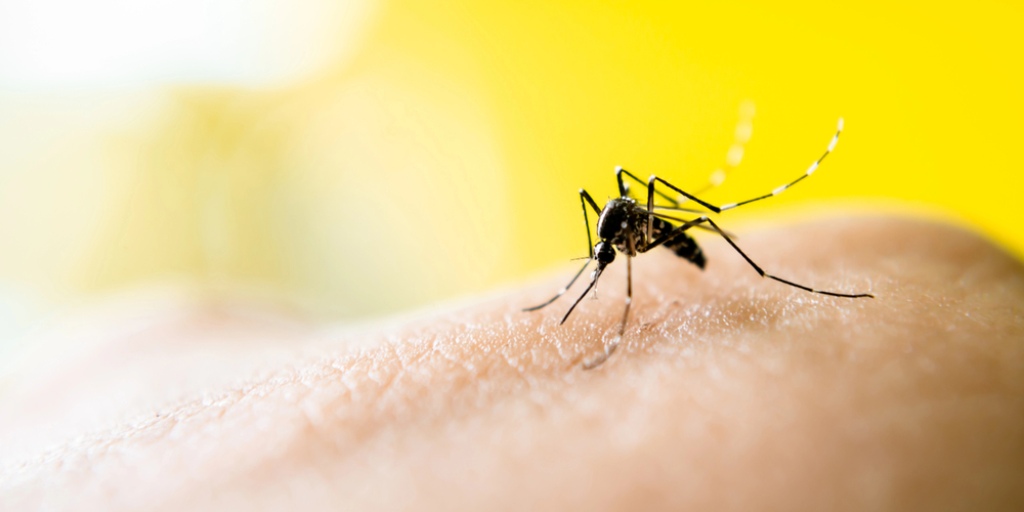Latin America is in the grip of dengue fever. And if you think you’re safe in Europe, you’re not in the clear either
Lesson summary
Hi there everyone, it’s Jeff and this is Plain English, where we help you upgrade your English skills with stories about current events and trending topics. Listen here and you’ll get exposure—no pun intended today—you’ll get exposure to new ideas, new words, new concepts, all in English, so you get your brain thinking in English. And it’s all about what’s going on in the world.
What’s going on in large parts of Latin America is an alarming increase in dengue fever. Today, we’ll break out a lot of the vocabulary we learned during the pandemic and we’ll talk about this disease—variants, vaccines, prevention, treatment, all those kinds of words we learned a few years ago.
In the second half of the lesson, I’ll show you what it means to buy something up.
This is lesson number 680, so that means the full lesson and all the resources—the quiz, the transcripts, the translations, the exercises, the practice area—that’s all at PlainEnglish.com/680.
Dengue fever is spreading quickly in Latin America
Dengue fever is a tropical disease spread by mosquitoes.
Every year, millions of people are infected. Eighty percent of them, however, are asymptomatic: they may never know they had it. Among those who do get symptoms, the most common effects are a mild fever, headache, and fatigue.
But about five percent of cases are serious, where patients require hospitalization. These patients suffer a more intense fever, muscle pain, joint pain, rash, fatigue, vomiting, and bleeding. In a very, very small percentage of cases, dengue can be life-threatening: just 0.03 percent of cases are fatal.
There are four variants of dengue, all of which are in circulation. A person infected with one variant can never get that same variant again. But if a person gets a different variant, the symptoms can be more severe than they were with the first infection.
Dengue is endemic in 100 countries. It’s most commonly found in Brazil, India, and southeast Asia, though cases are frequently reported in much of Africa and in equatorial regions of Latin America.
In the last couple of years, dengue fever has been spreading to more people and to more places. And though it doesn’t kill as many people as other tropical diseases, dengue does make people sick. It strains the medical system, causes people to miss work, and is generally unpleasant.
Latin America is by far the most-affected region from this new surge in cases. To put it in perspective , an average of 535,000 people in Latin America were infected with dengue every year from 2000 to 2005. About half a million people a year. But last year, 2023, there were eight times as many: over four and a half million infections. So far this year, almost six million people have been infected, and the year isn’t even half over.
Argentina, Bolivia, Paraguay and Brazil are experiencing the worst years of dengue in their histories. Brazil registered a million cases in only a few weeks. The army is scrambling to build tent hospitals in Brasilia, the capital. In Mexico, cases this year are five times higher than they were just a year ago. Peru and Puerto Rico have declared health emergencies. Cases are showing up in more-temperate Chile and Uruguay, which haven’t seen serious outbreaks before.
What can be done about the spread? Unfortunately, there aren’t many great options. Here are the basics. People can protect themselves with mosquito netting, insect repellant, and by wearing long-sleeved shirts and long pants.
Governments can take a few steps. Mosquitoes thrive in standing water. So governments can look for standing water and fumigate the area. But this is expensive and it’s hard to do over a vast area.
How about vaccines? Unfortunately, there are no great vaccines for dengue fever. One is an expensive, two-course injection. The other can only be administered to patients who have already had dengue before. But since most cases are asymptomatic, most people who can get the vaccine don’t even know they’re eligible.
Newer vaccines are promising, but it’s still early days. Brazil has bought up supplies of one of them, but there’s still not yet enough manufacturing capacity to roll out the vaccine across a large population. Another new vaccine is still in trials.
There is one other approach: to infect mosquitos before the mosquitoes infect humans.
Here’s how it works. Scientists can inject a bacteria into mosquito eggs. The bacteria slows the spread of the dengue virus. Once the eggs hatch, the infected mosquitos are then released into the wild. The females pass the bacterial along to their offspring. The idea is, the infected mosquitoes replace the non-infected mosquitoes in an area. This strategy can reduce transmission rates by 75 percent.
But this, as you can imagine, is a slow process. For now, most people are focused on prevention and treatment. Insect repellant is flying off the shelves in Argentina, Brazil, and other countries as consumers scramble to protect themselves.
Jeff’s take
Forecasting models now say that dengue fever and other “tropical” diseases are going to reach southern Europe and the southern U.S. soon. So as global temperatures rise, more and more people will have to worry about tropical diseases.
France says it’s worried about dengue for the Olympics. I was scratching my head over that—why? People don’t transmit dengue to other people. So if an infected person flies into France, develops symptoms…that’s bad for that person, but he can’t spread it, right?
Wrong. An infected person can spread the disease to a local mosquito and the mosquito can spread it to another person. Yikes.
Learn English the way it’s really spoken

